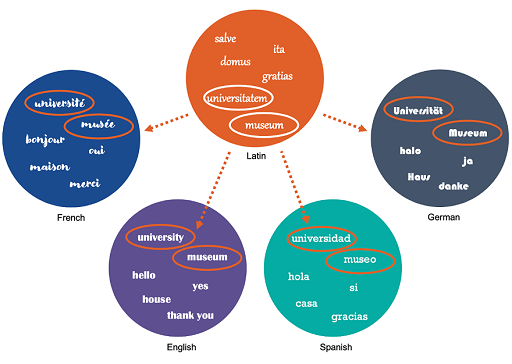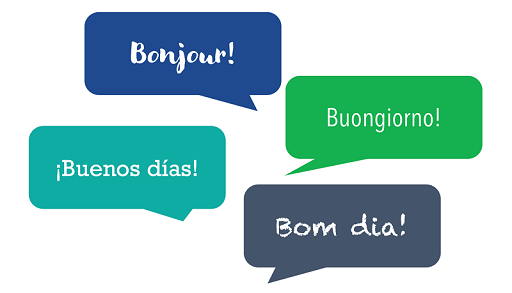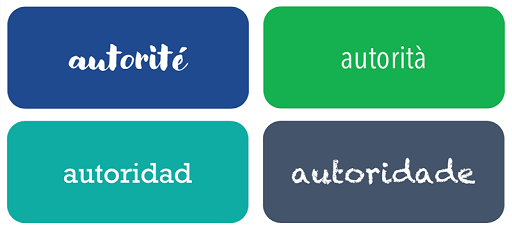3 A shared language history: cognates
Most European languages have common historical roots. A good example of one of these roots is Latin which, with the spread of the Roman Empire, influenced the development of the languages in the countries it controlled. As a result, a number of words in European languages have the same linguistic derivation. These are known as ‘cognates’.
In the table below are six example English words and the French equivalent, along with the correct article and gender (f. for feminine and m. for masculine) (you will find out more about these aspects in Week 4).
| English | French |
| administration | l’administration (f.) |
| table | la table (f.) |
| direction | la direction (f.) |
| accent | l’accent (m.) |
| promotion | la promotion (f.) |
| information | l’information (f.) |
Many cognates are nouns (naming words). Identifying them can be very helpful in figuring out the meaning of sentences or texts, even if your knowledge of French is relatively limited. Of course, if you were to hear a French speaker saying these words, they would sound different from the English – but notice that the spelling is identical. This isn’t always the case, but even when the spelling differs slightly, the meaning can often be deduced without much trouble. Try identifying some cognates yourself in the next activity.
Activity 5 Translate the cognates
Have a look at the five French cognates below. What do you think their equivalents are in English? See if you can fill in the table.
télévision |
|
présentation |
|
porc |
|
adresse |
|
carotte |
Answer
Here’s a completed version of the table:
télévision |
television |
présentation |
presentation |
porc |
pork |
adresse |
address |
carotte |
carrot |
In Week 1, it was mentioned that learning French could open the door to learning other languages too – the cognates you see here demonstrate this quite nicely. Italian, Spanish and Portuguese (which, together with French are ‘Romance languages’) in particular share a number of cognates. Notice how in Figure 7, these expressions of greeting in French, Italian, Spanish and Portuguese are all so similar (literally translating as ‘good day’), and how different they are to the ‘hello’ or ‘hi’ that is used in English.
Figure 7 shows another example from these Romance languages. This time the word is ‘authority’. This demonstrates just how closely related many words can be.



